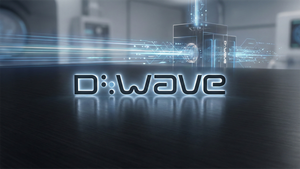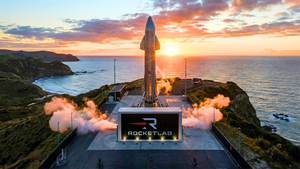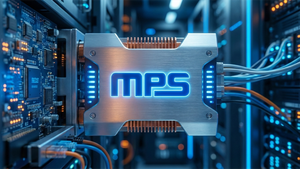
The global semiconductor industry is experiencing an unprecedented boom, driven by the escalating demands of artificial intelligence (AI) and high-performance computing (HPC). This "AI supercycle" is reshaping investment landscapes, with financial analysts closely scrutinizing companies poised to capitalize on this transformative wave. A recent "Buy" rating for Penguin Solutions (NASDAQ: PENG), a key player in integrated computing platforms and memory solutions, serves as a compelling case study, illustrating how robust financial analysis and strategic positioning are informing the health and future prospects of the entire sector. As of October 2025, the outlook for semiconductor companies, especially those deeply embedded in AI infrastructure, remains overwhelmingly positive, reflecting a pivotal moment in technological advancement.
The Financial Pulse of Innovation: Penguin Solutions' Strategic Advantage
Penguin Solutions (NASDAQ: PENG) has consistently garnered "Buy" or "Moderate Buy" ratings from leading analyst firms throughout late 2024 and extending into late 2025, with firms like Rosenblatt Securities, Needham & Company LLC, and Stifel reiterating their optimistic outlooks. In a notable move in October 2025, Rosenblatt significantly raised its price target for Penguin Solutions to $36.00, anticipating the company will exceed consensus estimates due to stronger-than-expected memory demand and pricing. This confidence is rooted in several strategic and financial pillars that underscore Penguin Solutions' critical role in the AI ecosystem.
At the core of Penguin Solutions' appeal is its laser focus on AI and HPC. The company's Advanced Computing segment, which designs integrated computing platforms for these demanding applications, is a primary growth engine. Analysts like Stifel project this segment to grow by over 20% in fiscal year 2025, propelled by customer and product expansion, an enhanced go-to-market strategy, and a solid sales baseline from a key hyperscaler customer, Meta Platforms (NASDAQ: META). Furthermore, its Integrated Memory segment is experiencing a surge in demand for specialty memory products vital for AI workloads, bolstered by the successful launch of DDR5 CXL Add-in Card products that address the rising need for high-speed memory in AI and in-memory database deployments.
The company's financial performance further validates these "Buy" ratings. For Q2 Fiscal Year 2025, reported on April 4, 2025, Penguin Solutions announced net sales of $366 million, a robust 28.3% year-over-year increase. Its non-GAAP diluted EPS surged to $0.52 from $0.27 in the prior year. The company ended Fiscal Year 2024 with $1.17 billion in total revenue and a record non-GAAP gross margin of 31.9%. Analysts project double-digit revenue growth for FY25 and EPS between $1.50-$1.90. Moreover, strategic partnerships, such as a planned collaboration with SK Telecom to drive global growth and innovation, and existing work with Dell Technologies (NYSE: DELL) on AI-optimized hardware, solidify its market position. With a forward price-to-earnings (P/E) multiple of 11x in late 2024, significantly lower than the U.S. semiconductor industry average of 39x, many analysts consider the stock undervalued, presenting a compelling investment opportunity within a booming market.
Reshaping the AI Landscape: Implications for Tech Giants and Startups
The positive outlook for companies like Penguin Solutions has profound implications across the AI and broader tech industry. Semiconductor advancements are the bedrock upon which all AI innovation is built, meaning a healthy and growing chip sector directly fuels the capabilities of AI companies, tech giants, and nascent startups alike. Companies that provide the foundational hardware, such as Penguin Solutions, are direct beneficiaries of the "insatiable hunger" for computational power.
Major AI labs and tech giants, including NVIDIA (NASDAQ: NVDA), Advanced Micro Devices (NASDAQ: AMD), and Intel (NASDAQ: INTC), are in a race to develop more powerful and efficient AI chips. Penguin Solutions, through its integrated computing platforms and memory solutions, plays a crucial supporting role, providing essential components and infrastructure that enable these larger players to deploy and scale their AI models. Its partnerships with companies like Dell Technologies (NYSE: DELL) and integration of NVIDIA and AMD GPU technology into its OriginAI infrastructure exemplify this symbiotic relationship. The enhanced capabilities offered by companies like Penguin Solutions allow AI startups to access cutting-edge hardware without the prohibitive costs of developing everything in-house, fostering innovation and reducing barriers to entry.
The competitive landscape is intensely dynamic. Companies that can consistently deliver advanced, AI-optimized silicon and integrated solutions will gain significant strategic advantages. A strong performer like Penguin Solutions can disrupt existing products or services by offering more efficient or specialized alternatives, pushing competitors to accelerate their own R&D. Market positioning is increasingly defined by the ability to cater to specific AI workloads, whether it's high-performance training in data centers or efficient inference at the edge. The success of companies in this segment directly translates into accelerated AI development, impacting everything from autonomous vehicles and medical diagnostics to generative AI applications and scientific research.
The Broader Significance: Fueling the AI Supercycle
The investment trends and analyst confidence in semiconductor companies like Penguin Solutions are not isolated events; they are critical indicators of the broader AI landscape's health and trajectory. The current period is widely recognized as an "AI supercycle," characterized by unprecedented demand for the computational horsepower necessary to train and deploy increasingly complex AI models. Semiconductors are the literal building blocks of this revolution, making the sector's performance a direct proxy for the pace of AI advancement.
The sheer scale of investment in semiconductor manufacturing and R&D underscores the industry's strategic importance. Global capital expenditures are projected to reach $185 billion in 2025, reflecting a significant expansion in manufacturing capacity. This investment is not just about producing more chips; it's about pushing the boundaries of what's technologically possible, with a substantial portion dedicated to advanced process development (e.g., 2nm and 3nm) and advanced packaging. This technological arms race is essential for overcoming the physical limitations of current silicon and enabling the next generation of AI capabilities.
While the optimism is high, the wider significance also encompasses potential concerns. Geopolitical tensions, particularly US-China relations and export controls, continue to introduce complexities and drive efforts toward geographical diversification and reshoring of manufacturing capacity. Supply chain vulnerabilities, though improved, remain a persistent consideration. Comparisons to previous tech milestones, such as the dot-com boom or the mobile revolution, highlight the transformative potential of AI, but also serve as a reminder of the industry's inherent cyclicality and the importance of sustainable growth. The current surge, however, appears to be driven by fundamental, long-term shifts in how technology is developed and consumed, suggesting a more enduring impact than previous cycles.
Future Developments: The Road Ahead for AI Silicon
Looking ahead, the semiconductor industry is poised for continuous, rapid evolution, largely dictated by the escalating demands of AI. Experts predict that the AI chip market alone could exceed $150 billion in 2025, with some forecasts suggesting it could reach over $400 billion by 2030. This growth will be fueled by several key developments.
Near-term, we can expect a relentless pursuit of higher performance and greater energy efficiency in AI processors, including more specialized GPUs, custom ASICs, and advanced neural processing units (NPUs) for edge devices. High Bandwidth Memory (HBM) will become increasingly critical, with companies like Micron Technology (NASDAQ: MU) significantly boosting CapEx for HBM production. Advanced packaging technologies, such as 3D stacking, will be crucial for integrating more components into smaller footprints, reducing latency, and increasing overall system performance. The demand for chips in data centers, particularly for compute and memory, is projected to grow by 36% in 2025, signaling a continued build-out of AI infrastructure.
Long-term, the industry will focus on addressing challenges such as the rising costs of advanced fabs, the global talent shortage, and the complexities of manufacturing at sub-2nm nodes. Innovations in materials science and novel computing architectures, including neuromorphic computing and quantum computing, are on the horizon, promising even more radical shifts in how AI is processed. Experts predict that the semiconductor market will reach $1 trillion by 2030, driven not just by AI, but also by the pervasive integration of AI into automotive, IoT, and next-generation consumer electronics, including augmented and virtual reality devices. The continuous cycle of innovation in silicon will unlock new applications and use cases that are currently unimaginable, pushing the boundaries of what AI can achieve.
A New Era: The Enduring Impact of Semiconductor Investment
The "Buy" rating for Penguin Solutions (NASDAQ: PENG) and the broader investment trends in the semiconductor sector underscore a pivotal moment in the history of artificial intelligence. The key takeaway is clear: the health and growth of the semiconductor industry are inextricably linked to the future of AI. Robust financial analysis, focusing on technological leadership, strategic partnerships, and strong financial performance, is proving instrumental in identifying companies that will lead this charge.
This development signifies more than just market optimism; it represents a fundamental acceleration of AI capabilities across all sectors. The continuous innovation in silicon is not just about faster computers; it's about enabling more intelligent systems, more efficient processes, and entirely new paradigms of interaction and discovery. The industry's commitment to massive capital expenditures and R&D, despite geopolitical headwinds and manufacturing complexities, reflects a collective belief in the transformative power of AI.
In the coming weeks and months, observers should closely watch for further announcements regarding new chip architectures, expansions in manufacturing capacity, and strategic collaborations between chipmakers and AI developers. The performance of key players like Penguin Solutions will serve as a barometer for the broader AI supercycle, dictating the pace at which AI integrates into every facet of our lives. The current period is not merely a boom; it is the foundational laying of an AI-powered future, with semiconductors as its indispensable cornerstone.
This content is intended for informational purposes only and represents analysis of current AI developments.
TokenRing AI delivers enterprise-grade solutions for multi-agent AI workflow orchestration, AI-powered development tools, and seamless remote collaboration platforms. For more information, visit https://www.tokenring.ai/.




